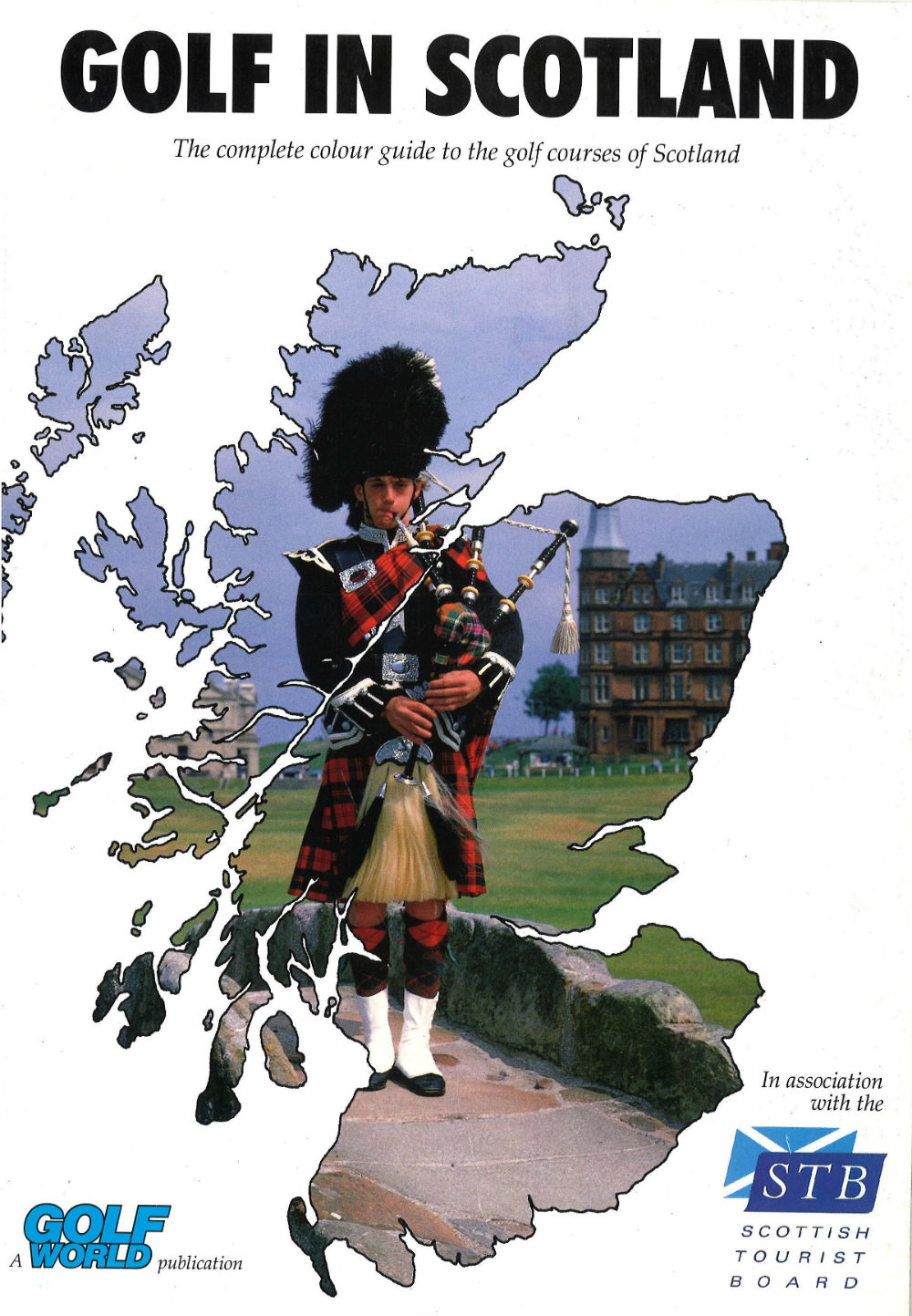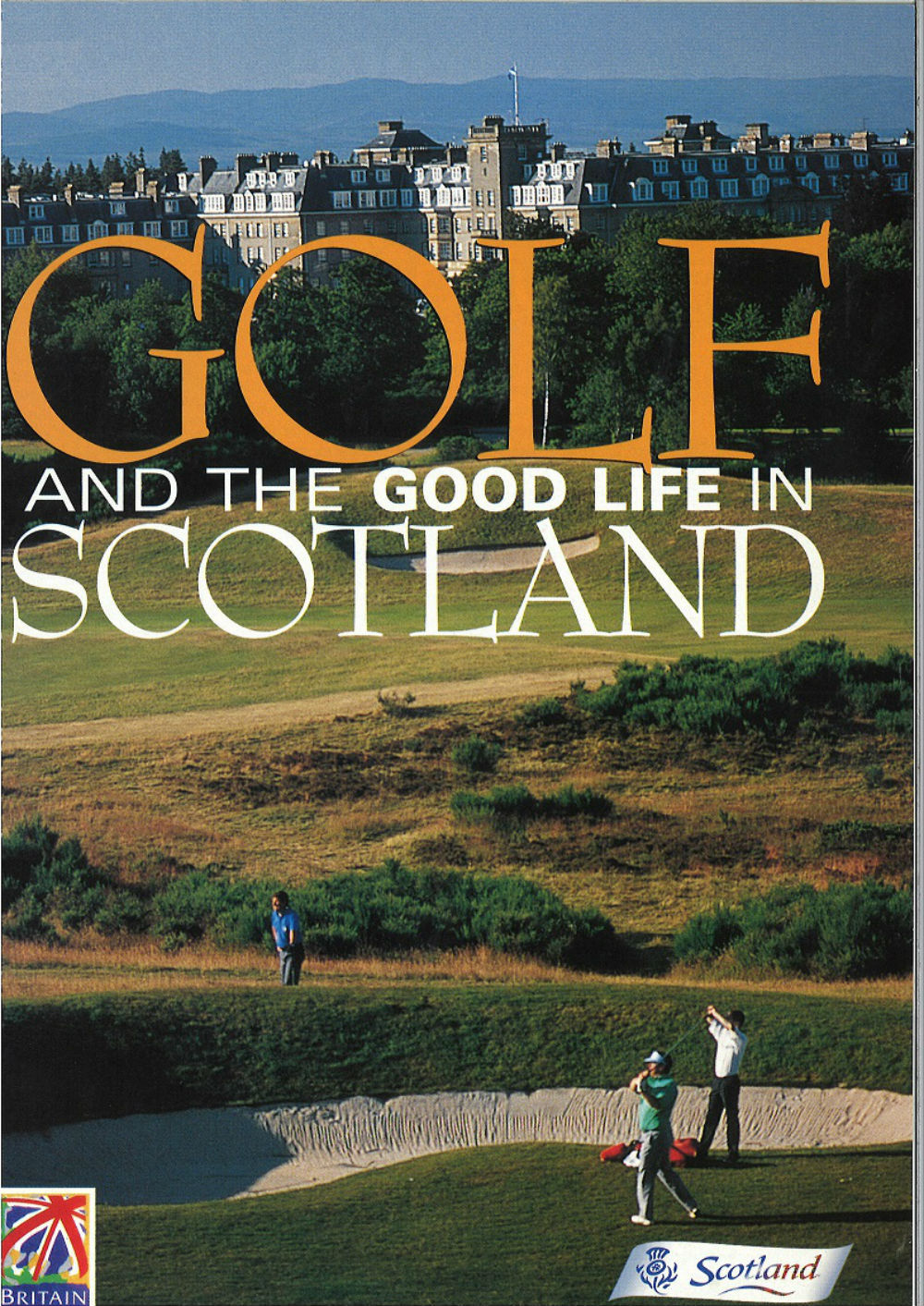VisitScotland has decided to celebrate 50 years by looking into how golf tourism has changed over the year ahead of the 2019 Solheim Cup.
The company which promotes Scottish tourism decided to trawl through the archives to see how the marketing of golf has changed.
Back in 1970 nine per cent of domestic visitors (from Scotland and the rest of the UK) played golf while they were visiting Scotland and in 1978 there were around 350 golf courses.
Before the internet, the brochure was the most important in helping promote these luxurious areas, with the Scottish Tourist Board (as VisitScotland was previously known) producing over five million booklets, leaflets and brochures at its peak in the 90s.
Golf was modestly featured in early marketing with some examples stating that “Golf is the ordinary man’s game in Scotland.”
Clearly times have changed with women making up around 16% of golf club membership in Scotland in the last decade. A women in Golf Charter established by the Royal and Ancient Golf Club of St Andrews last year.
As years went on dedicated golf tourism brochures were created but the rise of social media has led to a significant change in VisitScotland’s marketing methods.
Campaigns now target digital channels as well as the traditional routes – a far cry from the millions of brochures which kickstarted the world’s love affair with Scotland 50 years ago.

Nowadays half (47 per cent) of overnight visitors travel from overseas to play golf in Scotland with the country boasting over 570 golf courses.
Golf tourism is now a key part of Scotland’s visitor economy, worth more than £286 million on an annual basis with a target to grow that to £325 million by 2020.
Research shows that overseas golfing visitors spend on average £338 per night during a trip to Scotland, which is more than four times the daily spend of an average overseas visitor (£78.90).
From 2008 to 2017 the value of golf tourism and events increased by 30 per cent. Half of all female golfer visitors to Scotland describe themselves as either “luxury” or “holiday” golfers, indicating a willingness for a high-spend and to undertake a variety of other activities during a golf trip, visiting multiple regions.

Allan Minto, Golf Perthshire Project Manager and a former golf professional, said:“When I started out in 1979 at Gullane Golf Club we would get visitors coming to the course, getting lessons and buying souvenirs.
“Even then, it was recognised that tourism was a wider benefit for golf and vice versa but to see this relationship grow as it has is amazing.
“Getting stars like Jack Nicklaus at the height of his fame in the 80s to appear in adverts for the Scottish Tourist Board had a huge impact – he really was a big deal at the time and would have been a draw for lots of visitors.
“And the golf tournaments and events Scotland has hosted have just got better and better bringing more and more people from abroad. We’ve seen a real golden period from around 2013 to the present day and the upcoming Solheim Cup taking place this year.
“You now have visitors from North America coming here to travel around the country and tick of the bucket list courses, while those from places like Sweden and Norway will be more independent and like to discover some of the lesser-known courses.”
Malcolm Roughead, VisitScotland Chief Executive, said: “Scotland’s reputation as the ‘Home of Golf’ is renowned across the world but you don’t have to swing a club to feel the benefits of the popular sport.
“Golf is one of Scotland’s unique selling points with no other country able to match our history or heritage in the game. It has been played here for over 600 years and shows no sign of stopping.
The 2019 Solheim Cup is the biggest event in women’s golf and offers a significant opportunity to increase the number of golfing visitors to Scotland.
Running from, 9 to 15 September, at Gleneagles, Perthshire, this year’s Solheim Cup aims to be the biggest ever European edition of the event and the most family-focused golf event in history with around 100,000 spectators expected at Gleneagles.
Tickets for the Solheim Cup are priced from just £25 for adults with children under-16 admitted free of charge.
